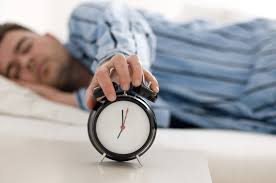 This week, we will talk about your sleep environment with some really great sleep tips from sleepfoundation.org.
This week, we will talk about your sleep environment with some really great sleep tips from sleepfoundation.org.
Try a few of these environment tips for a better night’s sleep this week. Personally, I like the sound of a noise-maker or fan to help me sleep. Do you require that too?
Noise
Noises at levels as low as 40 decibels or as high as 70 decibels can keep us awake. That means that a dripping faucet can steal your sleep, as well as the next door neighbor's blaring stereo. But the absence or presence of a familiar noise can have as great an impact on your sleep as out-of-the-ordinary noises. Studies show that sirens and traffic noise from a city street can actually become soothing to longtime city sleepers (they will cringe at the thought of sleeping in the serene desert or mountain climate) just as the absence of the tick, tick, tick of your favorite clock while you try to sleep at a hotel can become a sleep stealer.
What to do: Try to block out unwanted sounds with earplugs or use "white noise" such as a fan, air cleaner or sound conditioner. Take your favorite clock with you when you travel in order to recreate familiar sounds that help you sleep.
Temperature
In most cases, temperatures above 75 degrees Fahrenheit and below 54 degrees will disrupt sleep, but even sleep researchers fail to agree on the ideal temperature for sleep. The point at which sleep is interrupted due to temperature or climate conditions varies from person to person and can be affected by bed clothes and bedding materials selected by the sleeper. In general, most sleep scientists believe that a slightly cool room contributes to good sleep. That's because it mimics what occurs inside the body when the body's internal temperature drops during the night to its lowest level.
What to do: In general, sleep scientists recommend keeping your room slightly cool -- Turning the thermostat down at night in cold weather sets the stage for sleep and saves on fuel bills. A room that's too hot can also be disruptive. In fact, research suggests that a hot sleeping environment leads to more wake time and lighter sleep at night, while awakenings multiply. An air conditioner or fan can help, and a humidifier can provide relief if you're suffering from a sore throat or dryness in your nose.
Light
Much of our sleep patterns – feeling sleepy at night and awake during the day – are regulated by light and darkness. Light - strong light, like bright outdoor light (which is brighter than indoor light even on cloudy days) - is the most powerful regulator of our biological clock. The biological clock influences when we feel sleepy and when we feel alert. As a result, finding the balance of light and darkness exposure is important. Bright light helps to keep you awake during the day, but in the evening prior to sleep, bright lights can be disturbing.
What to do: Make sure to expose yourself to enough bright light during the day. Find time for sunlight. At bedtime, think dark: a dark bedroom contributes to better sleep. Try light blocking curtains, shades or blinds. If you find yourself waking earlier than you'd like, try increasing your exposure to bright light in the evening. It may delay sleep onset but as little as one to two hours of evening bright light exposure may help you sleep longer in the morning. Also, make sure to avoid light if you wake up in the middle of the night to go to the bathroom. Minimize light by using a low illumination night light.
Sleeping Surface
For the most part, we know people sleep better when horizontal and not cramped by space, and it is clear that the sleep surface plays a role in getting a good night's sleep. For example, tossing and turning on a lumpy 20-year-old mattress that doesn't provide support for your back or neck can impede you from getting the sleep you need and make you very sleepy (and stiff) the next day. Mattress experts say that too often consumers believe that ultra-firm mattresses are good for them, but research on patients with back pain found this was not true and a softer mattress may lead to better sleep.
What to do: Give yourself enough space to sleep. If you share a bed with a partner, make sure it is large enough to give both of you room to move around. Replace an old mattress with a new one, and choose a pillow and mattress that fits you best (soft, firm, thick, thin?) and will be comfortable throughout the whole night.

